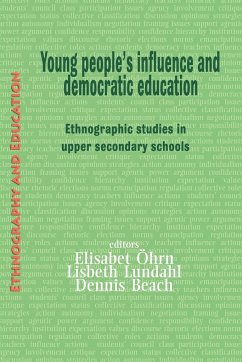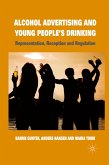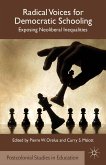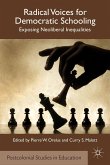The teaching and practice of democracy in schools might be considered particularly important in the present era as young people are spending increasing amounts of time in education. Upper secondary schools and universities are becoming more common post-school options than conventional workplaces. Consequently, the experience of democratic participation among the young people is strongly related to education spaces. Contemporary research shows the teaching of democratic values to typically emphasise individual freedom of choice and individual rights, at the expense of collective justice, political criticism and reflection. This risks leaving young people without guidance for how to exert influence both inside school and more generally. However, we lack knowledge about the relations between the content and organisation of teaching, and young people's attitudes and actions, as they typically constitute different research fields. This book attempts to help bridge this gap. Young people's influence and democratic education explores the teaching of democracy in school. In particular it relates to young peoples' responses and initiatives to change in formal education. Based on recent ethnographic investigations of Swedish upper secondary schools the book has been developed with a special focus on gender in relation to social background. Five differently gendered and classed upper secondary programmes were studied in detail. Theoretically, the book draws in particular on Bernsteinian and feminist perspectives. The book includes close individual analyses of the researched upper secondary classes as well as common presentations of previous research, theory and main empirical results. Central joint themes that are explored concerns teaching students to influence, student initiatives to exert influence, conditions for developing valued masculinities and femininities, the reproduction of hierarchical relations, and representations and relations of theory and practice.
Hinweis: Dieser Artikel kann nur an eine deutsche Lieferadresse ausgeliefert werden.
Hinweis: Dieser Artikel kann nur an eine deutsche Lieferadresse ausgeliefert werden.








